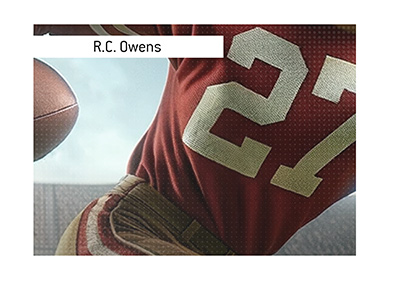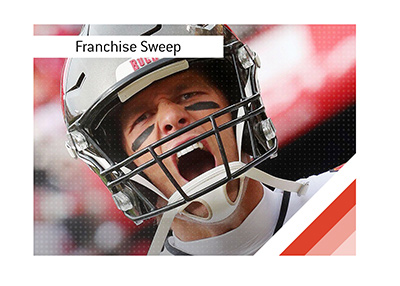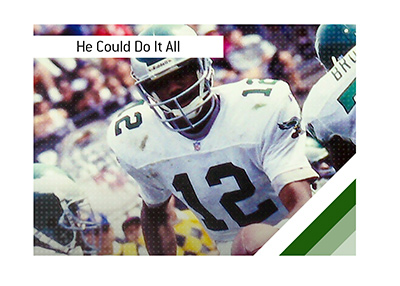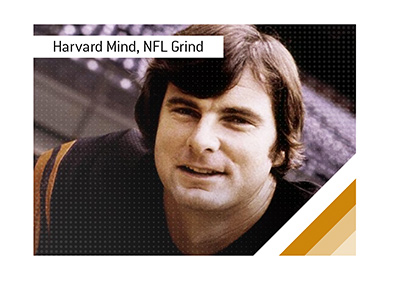Owens Signing With Baltimore Colts in 1962 Made History
Published on March 27th, 2024 4:05 pm ESTWritten By: Dave Manuel
 In 1962, wide receiver R.C. Owens signed with the Baltimore Ravens as a free agent.
In 1962, wide receiver R.C. Owens signed with the Baltimore Ravens as a free agent. Why was this so notable?
R.C. Owens was the first free agent signing in the HISTORY of the NFL.
-
From 1920 to 1946, the NFL had something called the "reserve rule".
The reserve rule meant that teams could sign their own players, over and over again, to one-year contracts, with the same terms as the year before.
Even if players wanted to leave, they couldn't, as the team could simply re-sign them to another one year deal.
In 1947, the "one year option rule" was introduced. Teams could re-sign their own players to one-year deals, but they could only use the reserve clause ONE time. After the reserve clause was used once, players could leave for any team that they wanted.
Nobody elected to leave their team until R.C. Owens came along.
In 1960, Owens declared that he was unhappy with the $10,500 that he was receiving. He wanted more money from the 49ers.
Owens played out his option year in 1961, and then signed with the Baltimore Colts in the 1962 off-season, becoming the first free agent in the history of the league.
-
Did Owens head into his final season with San Francisco wanting to put on a show for his new potential teams?
It sure seems like it.
Owens put up 1,032 receiving yards on 55 catches in 1961, along with 5 touchdown receptions.
These numbers put Owens into the top 10 of the league in terms of receiving yardage, and he parlayed this performance into a new contract with the Colts.
The owner of the 49ers, Vic Morabito, was so incensed about losing Owens and getting nothing in return that the owners created the "Rozelle Rule", which would allow teams to get compensation in return if they lost a free agent.
The NFLPA wasn't happy about this, but they would give in and accept the new rule. The Rozelle Rule would later be challenged in court by the NFLPA in the 1970s.




